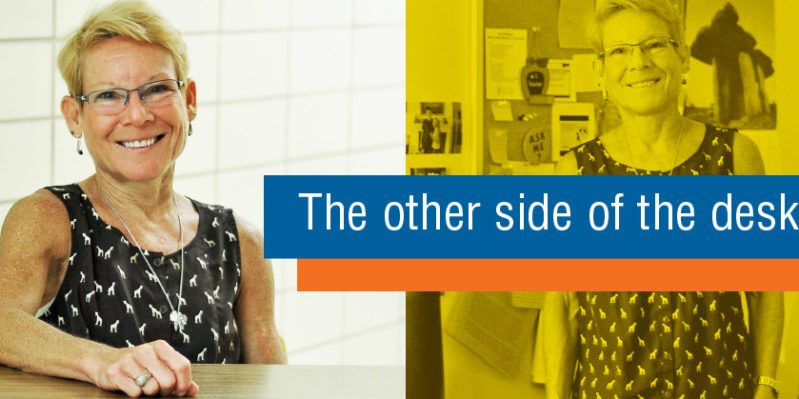
Graduation day is the ultimate culmination of student success. But behind that diploma, certificate, or degree are the stumbles and struggles that encompass the journey, and in the crowd are the teachers that taught them how to get back up and try again.
Teaching future teachers is something that Dr. Joy Thompson-Grim, lead faculty in the San Jacinto College South Campus education program, or “Dr. Joy” as her students call her, considers a true calling.
“I think we’re driven to become teachers if we have that desire, but teachers aren’t born; there’s a lot that we have to learn as well,” said Dr. Thompson-Grim. “Everyone’s gone through the education system, and they think they can be a teacher because they’ve watched them for years. It’s so much different on the other side of the desk.”
Though preparing future educators is her true passion, things didn’t start that way. Graduating from Texas A&M University with a major in parks and recreation administration, Dr. Thompson-Grim had ambitions to become a youth camp director and professional triathlete. She ran the Hawaii Ironman triathlon every year in her early 20s, and during that time, she began working in local psychiatric hospitals as a recreational and experimental ropes therapist. This led to her becoming the Gulf Coast director of the Texas Special Olympics.
A few years later, she was hired by the Annunciation Orthodox School in Houston to develop its athletics program. While teaching and serving as the athletic director, she earned her master’s and doctorate degrees in education from the University of Houston. Afterward, she worked in Houston area school districts training teachers and working with children and adolescents in ropes programming and motor development while also teaching at the University of St. Thomas, University of Houston, and San Jacinto College.
“Today in public schools, special education students are mainstreamed into general education populations, unless they’re severely disabled. Children with learning disabilities make up about 50 percent of students in special education programs. When our students complete the College’s education program, they have an understanding of high and low incident disabilities such as autism, speech and language disabilities, and intellectual and developmental disabilities,” said Dr. Thompson-Grim.
“This is what I was meant to do,” she added. “I love that I get to help build the College’s education program and show students how they can transfer an associate degree in teaching into a four-year program.”
According to Dr. Thompson-Grim, school districts are more likely to hire a teacher who has a teaching degree than one who only holds an alternative certification. “Individuals who hold a teaching degree are trained in their content area and in pedagogy – the art of teaching – so they are professionally prepared to teach. Schools are focusing more on hiring teachers who went the traditional route of getting a teaching degree, and I think our students stand a better chance in the education job market.”
The U.S. Bureau of Labor Statistics ranks Texas third in the nation for the highest employment of pre-school teachers and first for the highest employment of elementary and secondary school teachers. On average, pre-school teachers in Texas earn $34,270 annually; elementary teachers in Houston earn $51,850; and secondary school teachers in Houston earn $53,110. Houston also ranked first for the highest employment of secondary school career and technical education teachers who earn an average of $54,960 annually.
Andrea Vasquez

